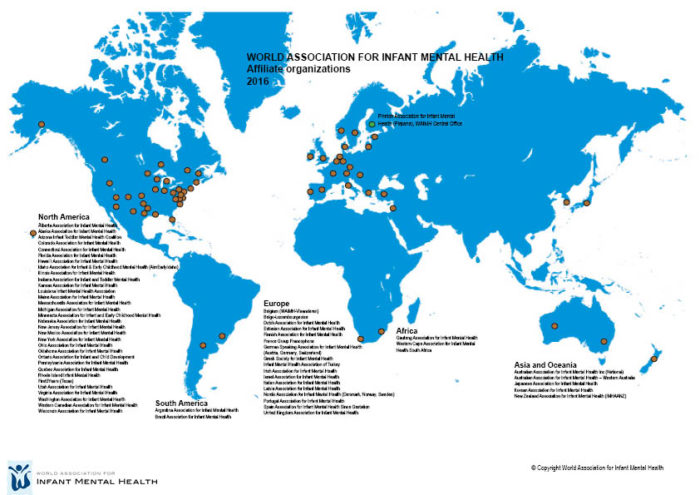Key Policy Components
Description of Infant Mental Health, providing the international evidence base for strong early foundations.
Understanding what contributes to social and emotional health and the importance of the primary relationships, supportive communities and healthy environments.
Outline of research and evidence base, and the provision of a shared language for policy makers and practitioners.
Workforce capacity building- need for a trained workforce with the capacity to integrate scientific evidence into clinical practice.
The social and economic rationale for integrating IMH into public health policy.
Developing Policy recommendations specific to the relevant parts of the statutory sector which hold responsibilities for child and family programmes.
The following account is a synopsis of the progress on an Infant Mental Health Policy Paper by a Working Group co-authored by Voluntary and Statutory health service providers and the Irish Association of Infant Mental Health. Its objective is to advocate for a National Infant Mental Health Strategy which will be informed by the latest research and evidence base in infant mental health principles and practice. The document has also been informed by discussions from an Infant Mental Health Policy and Practice Forum chaired by the Minister of State at the Department of Health with responsibility for Primary Care. The Forum included participants from a wide range of clinical, community and policy backgrounds.
The document titled “Tus Maith, Leath na hOibre – A Good Start is Half the Work” outlines the critical period of infancy and infant mental health in building strong foundations for life. It defines the vital role which the first three years presents in building strong foundations for healthy social and emotional development across childhood, adolescence and adulthood.
In Ireland, infant and toddler mental health is not a specific policy objective within Irish health service strategy documents.
Active monitoring of early childhood physical health takes place under the remit of immunisation programmes and child health surveillance, yet similar close monitoring of infant and toddler social and emotional health does not exist in the same format.
There are decades of knowledge and research evidence available regarding early social and emotional development. We are only beginning to see this knowledge base reflected in our early childhood strategy documents. While this is a welcomed development, much more is required. It is critical that infant mental health practice and principles underpin a comprehensive early childhood strategy
Prevention and early intervention principles are frequently cited at a theoretical level. Yet, their specificity regarding infant and toddler development and early caregiving relationships are not translated at a practice level regarding what is required to effectively promote and support caregivers in their vital roles with the zero to three population.
This policy paper presents policy makers and senior decision makers with a significant opportunity to gain a clearer understanding of the principles underpinning infant’s mental health and invites and challenges them to address the significant deficits present across all points of health service delivery.
Infant mental health practice has an important contribution to make to more cost-effective health, education and social services, presenting Government with an opportunity to make a sound economic investment whilst at the same time delivering on best practice with infants, toddlers, their families and carers.
The development and implementation of a national infant mental health strategy promises significant child, family and public health outcomes. Benefits include promotion of the psychological health and well being of young children, the capacity to sustain good mental health across the lifespan and reduction in the prevalence of mental health illness across childhood, adolescence and adulthood (Shankoff & Phillips, 2000, Schore, 1994). Broader social and economic benefits will also be achieved at a whole population level through the investment and allocation of resources in infant mental health (Allen 2011).
References
Allen, G. (2011). Early Intervention: Smart Intervention, Massive Savings. The second independent report to Her Majesty’s Government.
Schore, A. (1994). Affect Regulation and the Origin of the Self: Neurobiology of Emotional Development. New Jersey. Erlbaum.
Shankoff, J.P. & Phillips, D.A. (Eds.) (2000). From Neurons to Neighbourhoods: The Science of Early Development. Washington DC, National Academic Press.
Authors
Maguire, Catherine,
President,
Irish Association for Infant Mental Health,
Ireland








